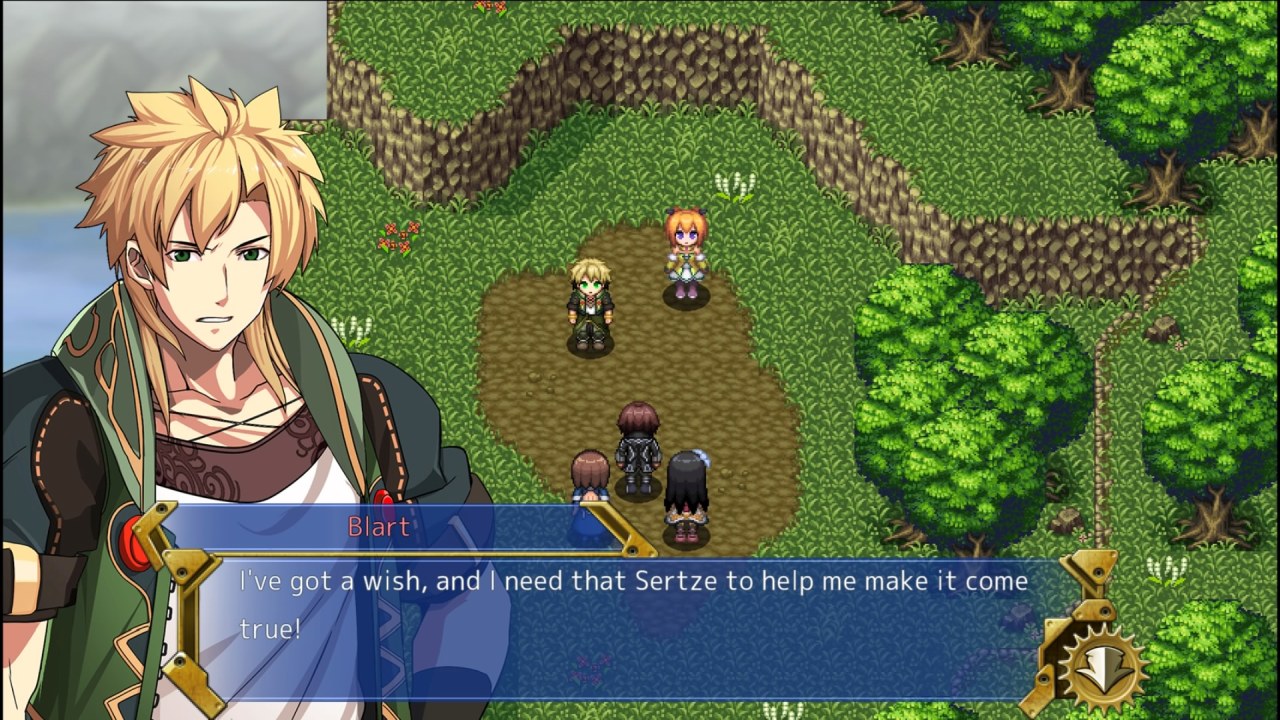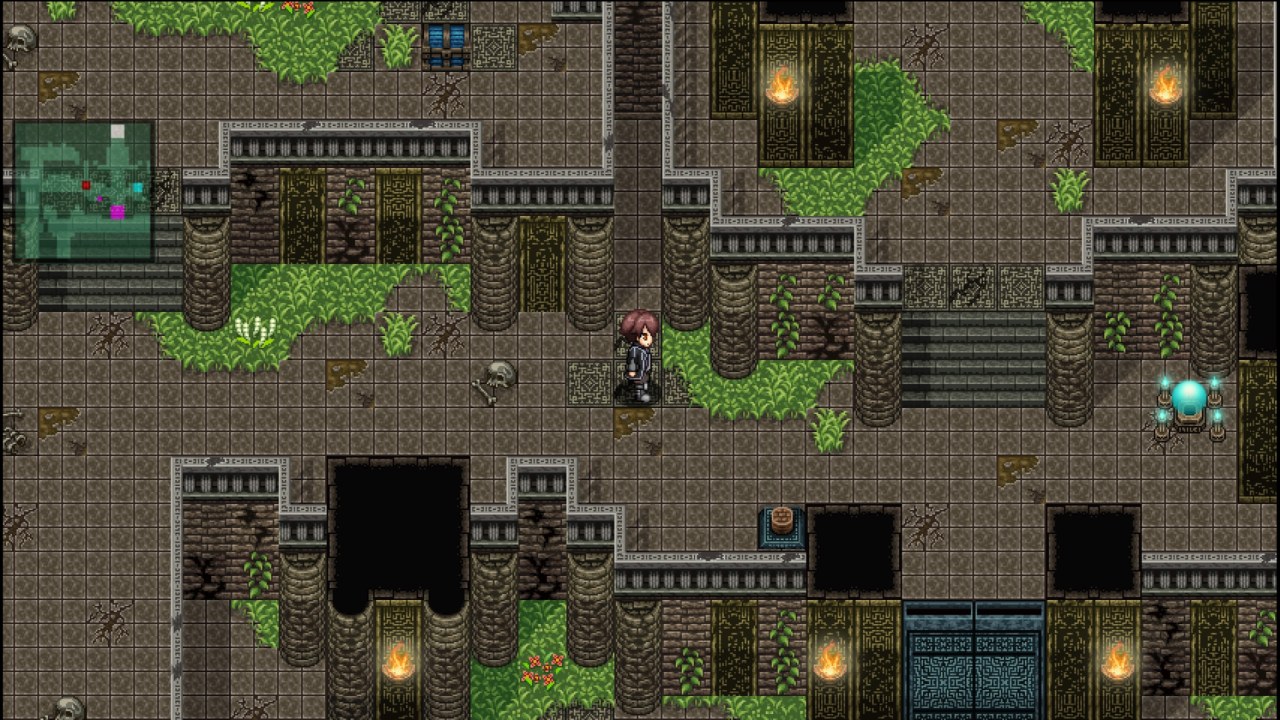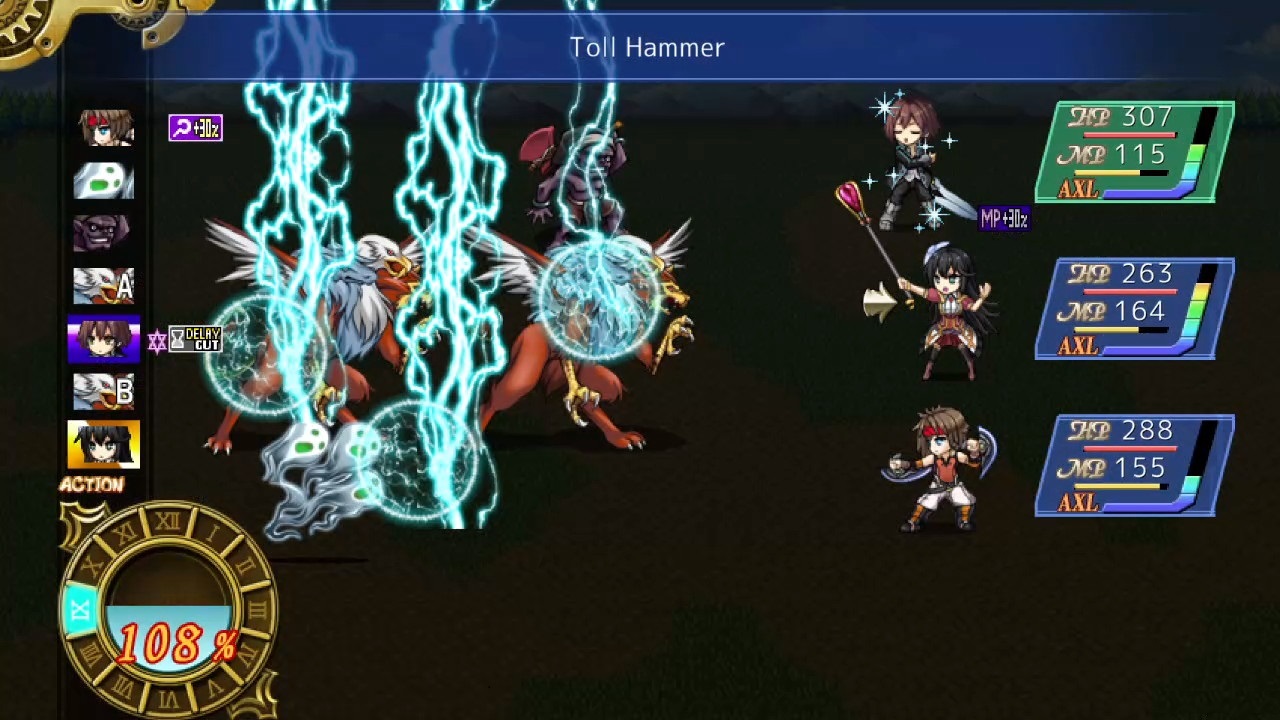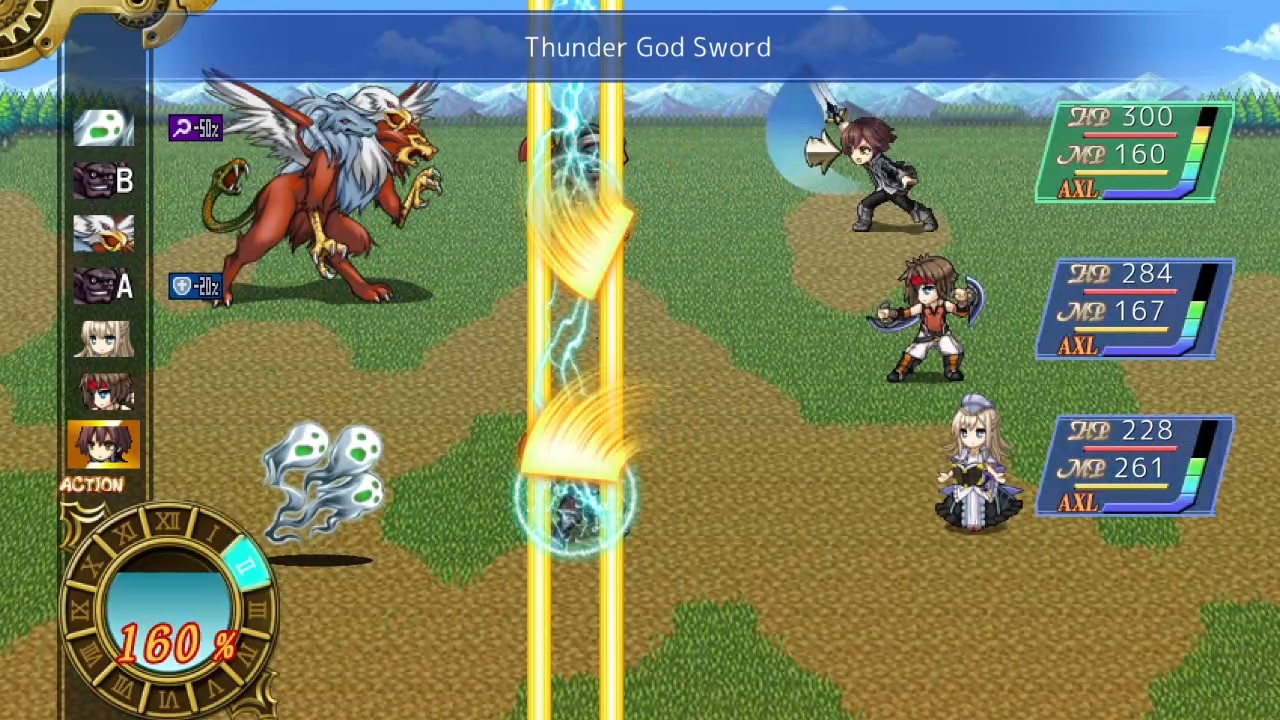Grace of Letoile is the latest retro RPG from KEMCO’s RPG assembly line, and it’s one of their better entries I’ve played as of late. You know the look, and you’ll recognize the various story tropes, but the combat mechanic does enough to push the game toward the top of KEMCO’s catalog. Well, that’s provided you’re either fine with random encounters or won’t mind spending $1.99 to make them stop.
Grace of Letoile begins with a young boy, Vedley, trying to prove to his parents just how brave he is. This, of course, directly leads to his parents’ deaths. Unable to forgive himself as the years pass, Vedley one day stumbles across a shady fellow, Achieitz, who presents him with the notion he can turn back time and save his parents.
To do that, however, Vedley must make a pact with a Letoile (a living doll) and team up to overcome the other Letoiles and steal their Sertzes. Vedley becomes the Maschelle of a Letoile named Ajin, and—along with his sister, Moniya—sets out to change his parents’ fate.
OK, you don’t need to understand the terminology at this point. What matters here is that not everyone directly related to this quest shares the same motivation. Ajin, the first of all Letioles, is more concerned about stealing her sisters’ Sertzes than she is with Vedley’s family life. In fact, her frustration with Vedley’s need to do the right thing at the detriment of working towards their shared goal makes for an interesting party dynamic. Moniya even gets to be more than the third wheel as she wrestles with keeping her brother safe from not only his enemies, but also his ambitions.
The plot takes the twists and turns you’d predict as other characters come and go, but the story’s brisk pacing and complicated relationships held my attention throughout. Some of the dialogue is stiff, but never annoyingly so.

What I really enjoyed, however, is the way seemingly random NPCs ended up becoming catalysts for major story elements. Our heroes really should’ve been better about having key conversations in public places.
So, the story and characters in Grace of Letoile are a few notches above the typical KEMCO fare. That’s good news. The better news is I can say the same for the gameplay.
As you can tell from just a single screenshot, the game plays like the JRPGs of yore. You’ll explore a world map filled with “dungeons” and countless random battles. The story will drive you in and out of various towns where you can rest, upgrade your weapons and armor, buy supplies, and push the plot along. I do wish the map was more helpful at pinpointing objectives and letting you cycle through locations. It’s never that hard to find your destination, just cumbersome with all the random battles.
Did I mention the random battles? It’s difficult to move more than five to ten seconds without being pulled into combat. Thankfully, the fights can be fun, depending upon whom you’re up against. Most enemies are fodder. Grace of Letoile levels you up so quickly that there’s really no need for the typical KEMCO DLC option that allows you to gain experience at twice or three-times the normal rate. The better purchase is the aforementioned ability to shut off random encounters. You likely won’t need to grind much, and skipping fights is a blessing when you’re backtracking to pick up a treasure chest you may have missed.

Each KEMCO game has its own combat gimmick, and this one has two. First, an Axel Gauge allows you to determine how frequently each party member gets a turn. The more often you attack, however, the more susceptible you are to damage. I typically maxed out Vedley’s defense with armor and set him to attack frequently. In boss fights, on the other hand, I found it more useful to do that with my magic users so they could buff and heal the party as necessary.
Second, there’s a Chronos Gauge that kind of works like an attack clock. Each character has 12 unlockable slots in which you can place special gems you’ve acquired. With each turn in combat, the active slot changes like the hour hand on a clock. If the hour hand, as it were, is on a slot where the active attacker has an ability gem, using that ability will significantly raise the Chronos Gauge. The main benefit is you can then select a team member to move immediately after the active attacker. This is perfect for healing, reviving a fallen fighter, or taking advantage of field effect bonuses (like in the Trails of Cold Steel games) that otherwise would’ve gone to an enemy.

These mechanics rarely come into play in the random skirmishes, but they will often be necessary to overcome the game’s numerous boss battles. I therefore wish there were more of them. Grace of Letoile focuses a bit too much on the story, forgoing side quests and the enemies you’d encounter with them. That’s good for pacing if the narrative is the selling point, but it robs the play of some advanced combat fun.
So, how about the graphics? The animation? They’re OK. The dungeons are colorful and easy to navigate. Somewhat easy to predict, too, when seeking treasure chests. A couple of them do become oddly complex to work your way through. So, again, it’s just $1.99 to turn off random encounters. The battle animations are barely animated, although some of the magic effects are kind of cool.
It all adds up to a game that’s easy to push through, and easy to like along the way. Grace of Letoile won’t challenge seasoned JRPG fans, but it won’t insult them, either. Not gonna lie, that’s sometimes exactly what I want from a retro adventure.

